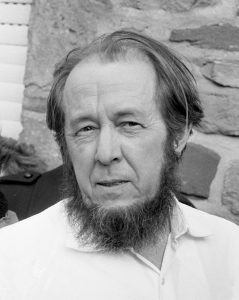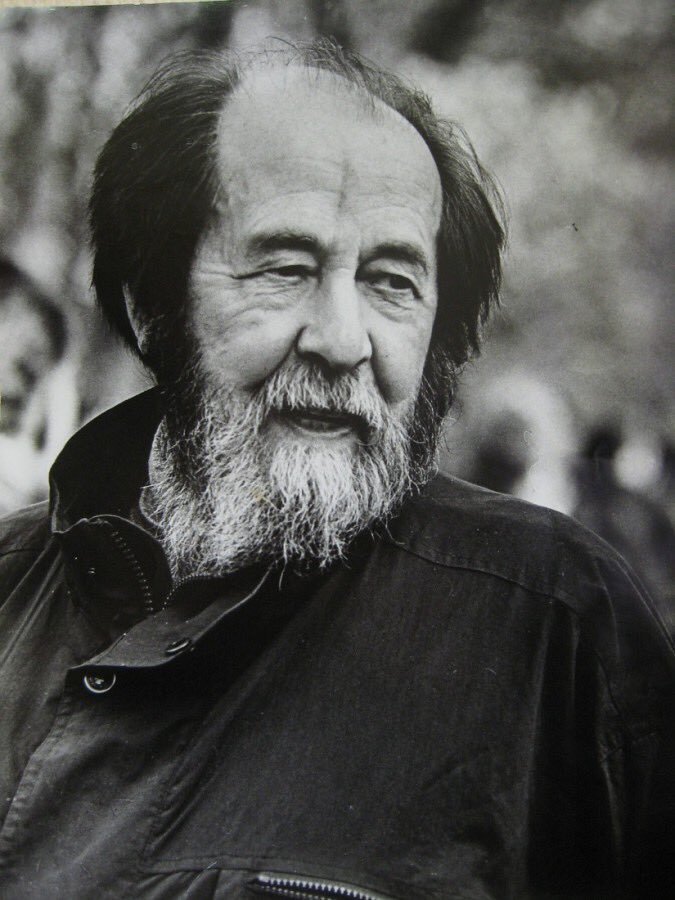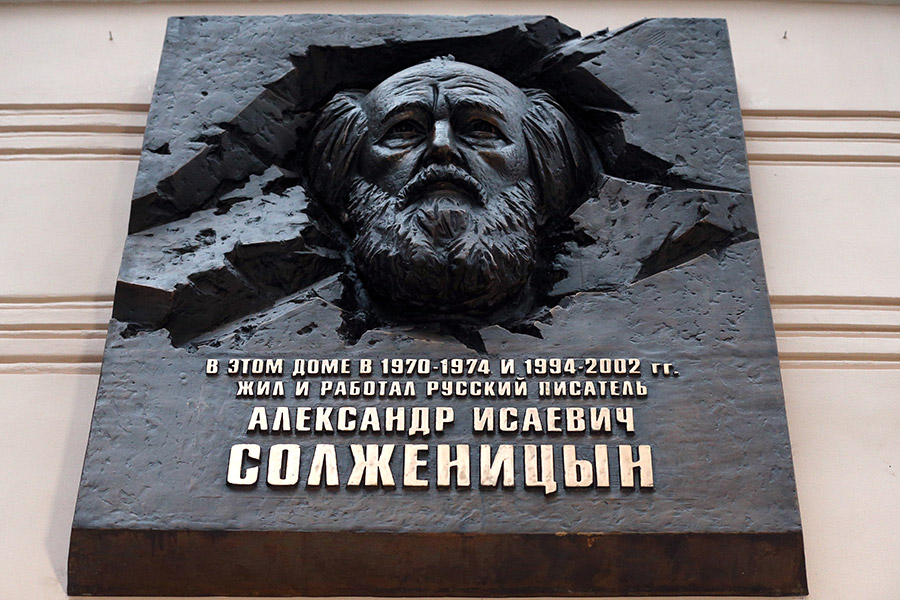Alexander Isaevich
Solzhenitsyn
1918-2008

Alexander Isaevich Solzhenitsyn was an outstanding writer, academician of the Russian Academy of Sciences, Nobel Prize winner, politician and social activist. His father was a working peasant, and his mother was a representative of the Cossack people. In 1936, A.I. Solzhenitsyn entered the university at the Faculty of Physics and Mathematics, but did not give up his active literary activity. In 1939, he applied to the Institute of Philosophy in Moscow for the Faculty of Literature and History. With the beginning of the Great Patriotic War, Solzhenitsyn sought to get to the front and, despite his poor health. In 1941, he joined the service in the transport and horse-drawn direction. The military school in Kostroma accepted the writer in 1942, where he was awarded the rank of lieutenant. By 1943, Solzhenitsyn received two honorary orders for his services, as well as the rank of senior lieutenant, and then captain. In February 1945, A.I. Solzhenitsyn was arrested. After serving a year in construction crews and three years in the camp, Solzhenitsyn composed literary works inspired by his own experience. His famous works “One Day of Ivan Denisovich”, “Cancer Corps” and “GULAG Archipelago” grew out of these difficult years. In 1956, A.I. Solzhenitsyn was rehabilitated. In 1961, A.I. Solzhenitsyn gave his story “One Day of Ivan Denisovich” to A.T. Tvardovsky, the editor-in-chief of the Novy Mir magazine, which was the beginning of his public career. In the period from 1975 to 1994, A.I. Solzhenitsyn visited many countries, including Germany, Spain, Switzerland, Great Britain, the USA, France and Canada. Returning to his homeland in 1994, Solzhenitsyn continued his literary activity. The first thirty volumes of his collected works were published in 2006-2007.
Address: Moscow, Tverskaya str., 12, p. 8

